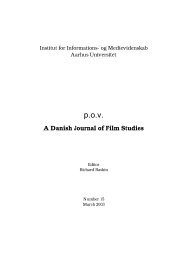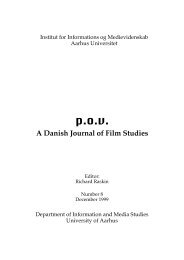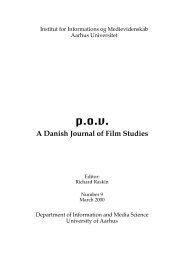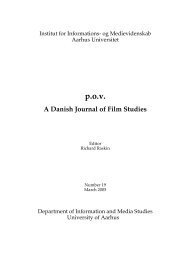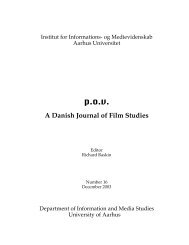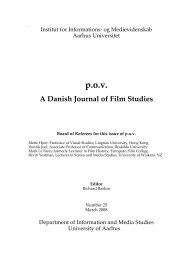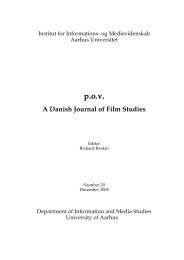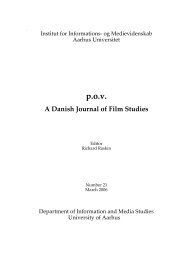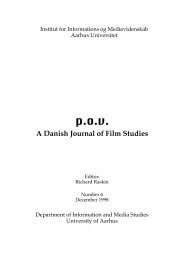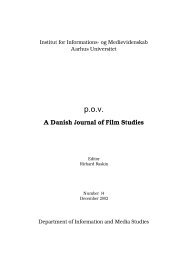The Face of Time - POV - Aarhus Universitet
The Face of Time - POV - Aarhus Universitet
The Face of Time - POV - Aarhus Universitet
You also want an ePaper? Increase the reach of your titles
YUMPU automatically turns print PDFs into web optimized ePapers that Google loves.
98 p.o.v. number 13 March 2002<br />
speaking <strong>of</strong> the ethical relation with the Other, Levinas uses terms<br />
like "infinity", "enigma" or "obsession". It seems to me that these<br />
terms also describe quite well the disturbing effect created by Wind.<br />
<strong>The</strong> film's "indifference" towards the hanging, its refusal to give<br />
any psychological or political explanation to what is happening,<br />
creates precisely that kind <strong>of</strong> disturbing effect that Levinas sees in<br />
the ethical relation. <strong>The</strong> killing is laid bare as nothing else but killing<br />
pure and simple. <strong>The</strong> people are seen not as representatives <strong>of</strong> some<br />
political movement that might in some way legitimize or explain<br />
what they are doing. <strong>The</strong>y are simply people killing and being<br />
killed. Who they are and what their motives are remains an open<br />
question, an enigma. <strong>The</strong> question <strong>of</strong> the film, instead <strong>of</strong> dying<br />
when the "answer" is reached, is revived and stays alive long after<br />
the film has ended. Like the <strong>Face</strong> that speaks the words "Thou shalt<br />
not kill," Wind leaves us obsessed with the question without an<br />
answer, the enigma <strong>of</strong> the Other.



